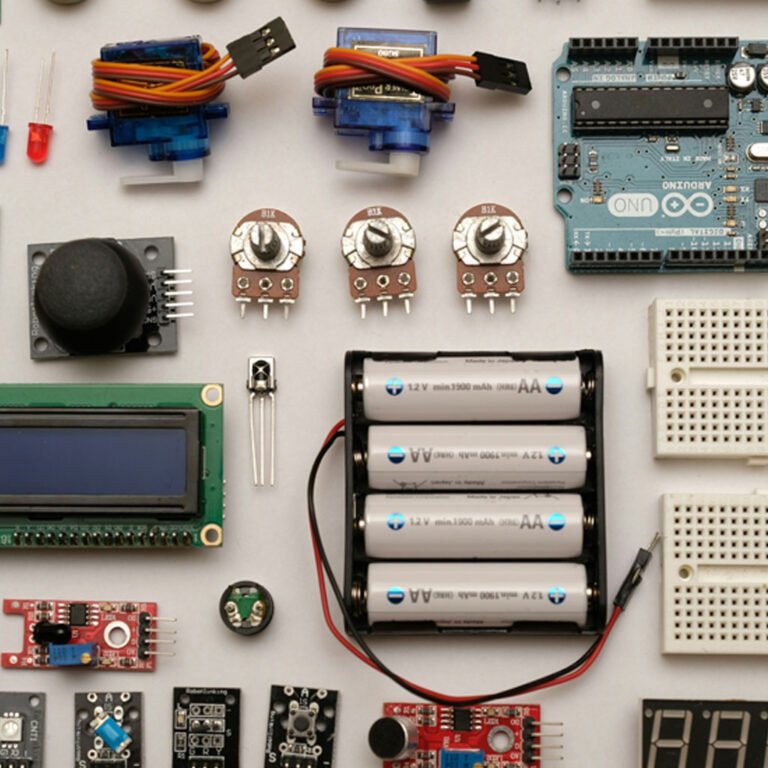
Harnessing IoT for Urban Development: The Evolution of Smart Cities
Last updated: March 14, 2024 | Digital Techtune
The advent of the Internet of Things (IoT) has revolutionized various sectors, including urban development. Smart cities, a concept gaining traction worldwide, leverage IoT technology to enhance efficiency, sustainability, and livability. This essay explores how smart cities utilize IoT for urban development, examining its applications, benefits, challenges, and future prospects.
Understanding Smart Cities and IoT
Smart cities integrate advanced technologies to manage assets, resources, and services efficiently. At the heart of this transformation lies IoT, a network of interconnected devices capable of collecting and exchanging data. These devices, embedded in urban infrastructure, encompass sensors, actuators, cameras, and other smart devices. They generate vast amounts of data, enabling real-time monitoring, analysis, and decision-making.
Applications of IoT in Smart Cities
- Smart Infrastructure Management:
- IoT sensors monitor the condition of bridges, roads, and buildings, detecting anomalies and predicting maintenance needs.
- Smart grids optimize energy distribution, reducing waste and enhancing reliability.
- Intelligent transportation systems use real-time data to manage traffic flow, improve safety, and reduce congestion.
- Environmental Sustainability:
- IoT-enabled waste management systems optimize collection routes, reduce landfill usage, and promote recycling.
- Smart irrigation systems conserve water by monitoring soil moisture levels and weather forecasts, ensuring efficient usage in urban landscapes.
- Air quality monitoring sensors detect pollutants, enabling authorities to implement timely interventions to mitigate environmental risks.
- Public Safety and Security:
- IoT-based surveillance systems enhance public safety by detecting and responding to incidents in real-time.
- Smart lighting adjusts brightness based on pedestrian traffic and environmental conditions, improving safety and reducing energy consumption.
- Emergency response systems use IoT data to optimize resource allocation and coordinate rapid interventions during crises.
- Enhanced Citizen Services:
- IoT-powered smart meters enable remote monitoring of utilities, empowering residents to manage energy consumption and reduce costs.
- Smart parking systems guide drivers to available parking spots, reducing traffic congestion and emissions.
- Mobile applications provide real-time updates on public transportation schedules, helping commuters plan their journeys more efficiently.
Benefits of IoT in Smart Cities
- Improved Efficiency:
- Real-time data analytics optimize resource allocation and operational processes, reducing inefficiencies and costs.
- Predictive maintenance minimizes downtime and prolongs the lifespan of critical infrastructure assets.
- Automated systems streamline administrative tasks, freeing up human resources for more value-added activities.
- Enhanced Sustainability:
- IoT-enabled solutions promote resource conservation and environmental stewardship, contributing to a greener and more sustainable urban environment.
- Energy-efficient infrastructure reduces carbon emissions and lowers utility bills, benefiting both the city and its residents.
- Sustainable transportation solutions reduce reliance on fossil fuels, alleviate traffic congestion, and improve air quality.
- Greater Resilience:
- IoT-based monitoring and early warning systems enhance the city’s resilience to natural disasters, cyber threats, and other emergencies.
- Real-time data insights enable proactive decision-making and rapid response during crises, minimizing damage and disruption.
- Interconnected infrastructure facilitates collaboration among stakeholders, fostering a more resilient and adaptive urban ecosystem.
Challenges and Considerations
- Privacy and Security Concerns:
- The proliferation of IoT devices raises concerns about data privacy, security vulnerabilities, and potential misuse of personal information.
- Safeguarding sensitive data and ensuring compliance with privacy regulations are paramount to building trust and acceptance among citizens.
- Interoperability and Standardization:
- The heterogeneity of IoT devices and platforms poses challenges for interoperability and seamless integration across different systems.
- Developing standardized protocols and frameworks is essential to enable compatibility, scalability, and future-proofing of smart city infrastructure.
- Digital Divide and Equity:
- Unequal access to technology and digital literacy may exacerbate social disparities and widen the digital divide within urban communities.
- Smart city initiatives must prioritize inclusivity and equitable access to digital services to ensure that all residents benefit from technological advancements.
- Scalability and Sustainability:
- Scaling IoT deployments across a city-wide or regional level requires careful planning, investment, and ongoing maintenance to ensure long-term sustainability.
- Identifying scalable business models and securing adequate funding are critical for sustaining smart city initiatives beyond pilot projects.
Future Prospects and Outlook
- Continued Technological Innovation:
- Advancements in IoT technologies, such as edge computing, 5G connectivity, and artificial intelligence, will further enhance the capabilities and scalability of smart city solutions.
- Emerging technologies like blockchain and distributed ledger technology hold promise for enhancing security, transparency, and trust in smart city ecosystems.
- Citizen-Centric Design and Engagement:
- Future smart city initiatives will prioritize citizen-centric design principles, engaging residents as active participants in co-creating sustainable and inclusive urban environments.
- Leveraging participatory approaches and user feedback will ensure that smart city solutions align with the diverse needs and preferences of the community.
- Collaborative Governance and Partnerships:
- Effective governance structures and public-private partnerships will be essential for driving collaboration, innovation, and investment in smart city initiatives.
- Engaging stakeholders from government, industry, academia, and civil society will foster a holistic and inclusive approach to urban development.
Smart cities harness IoT technology to transform urban landscapes, making them more efficient, sustainable, and resilient. By leveraging real-time data insights, smart city initiatives optimize resource allocation, enhance service delivery, and improve quality of life for residents. Despite challenges related to privacy, interoperability, and equity, the future of smart cities looks promising, driven by technological innovation, citizen engagement, and collaborative governance. As cities continue to evolve, embracing IoT-enabled solutions will be essential for building smarter, more livable communities for generations to come.

